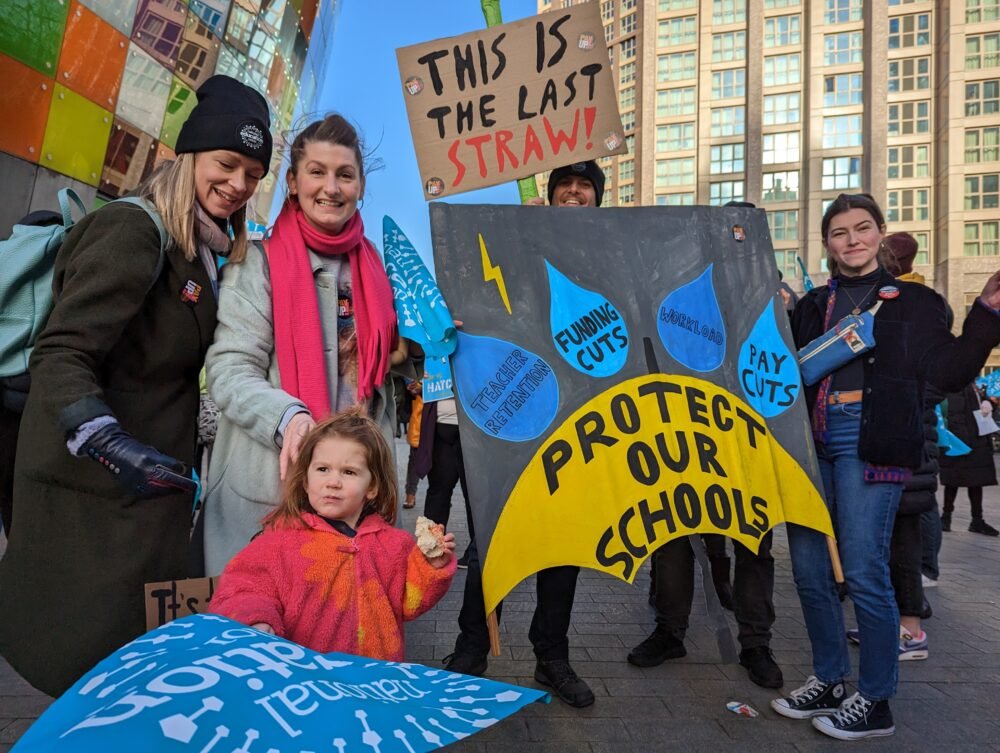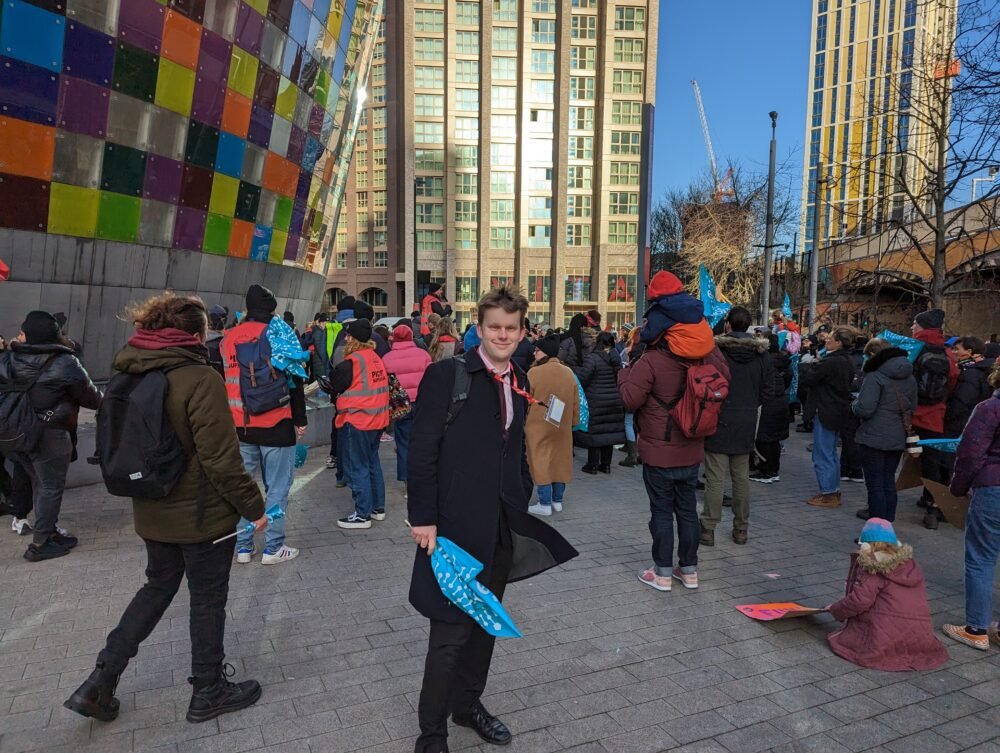‘Our schools are crumbling’: South London teachers on strike
Teachers across South London joined a national day of strike action today as schools closed and thousands made their way to the centre of the capital for a rally.
The day of action, organised by the National Education Union (NEU), was called by teachers demanding pay in line with soaring inflation, properly funded schools and better working conditions.
More than 100 people gathered outside Glass Mill Leisure Centre in Loampit Vale, Lewisham, before heading into central London to join the national rally.

NEU branch secretary, Kim Knappett, who has taught science at Forest Hill school in Dacres Road for 22 years, said her pay had gone down by 23 per cent in the past decade, when inflation was taken into account.
“I’m seeing so many younger professionals leaving so quickly because pay does not match other jobs,” she said.
“Pupils are being taught by supply teachers or unqualified teachers. It’s a tragedy and it’s having a detrimental effect on their education.
“The joy of teaching is gone. For too long I’ve been watching the revolving door of amazing teachers looking around and going ‘I can’t take the workload or pay.”

Ms Knappett said a group of teachers who lived together and are members of the Lewisham branch were forced to give up their living room as a room to rent to another teacher, as they couldn’t afford to live there without doing so.
James Kerr, 38, teaches English at Sydenham School in Dartmouth Road, and is assistant district secretary for the NEU Lewisham branch.
He said he would £10,000 more per year, had his pay matched inflation.
He said: “Most people from my generation are in debt – student debt and overdrafts. I have a one-year-old daughter and I want to put away money for university or to get on the property ladder, yet we’re hand-to-mouth every month.
“Bills, energy, food. It’s a similar story around the country, which has really sharpened in the past 12 months.”
James said the biggest issue facing schools was the workload, and described a “vicious cycle” in which teachers were leaving over poor pay and conditions, which increased workloads for those who remained.
The most recent pay round for the education sector saw teachers receive a pay rise of five per cent – well under their demands for a 12 per cent increase.
More than 80 per cent of most schools’ budgets go towards paying salaries, and the Government has told most schools to take any pay increases out of existing school budgets, reducing the amount of money left for pupils.
He added: “Since 2010, schools have been massively underfunded, huge cuts have been made and the amount of spend per pupil has declined. There are schools in Lewisham that are crumbling.”

Max Smith, 28, is head of music at Prendergast School in Adelaide Avenue, and said there was a “retention crisis” in the sector – there have been four heads of music at the school in the past four years.
“The Government is failing learners,” he said, at the rally in Lewisham. “We can’t get the right staff, there are lots of cover teachers. There’s no consistency for children, which makes it impossible to make progress.
“They have been failed, not by my school, but by the Government.”

Another teacher at the Lewisham rally, Laura Rogers, 38, a primary school teacher at Lucas Vale primary school, said teachers were being made to pay for “years of austerity”.
She said: “We’re expected to do more with less, while our own living standards decline and our students’ living standards decline.
“We would much rather be teaching today than striking, but we’re committed to the job so we strike because of it, not in spite of it.”
The Department for Education has been contacted for comment.
Pictured top: Members of the National Education Union gathered outside Glass Mill Leisure Centre in Lewisham (Picture: PA)
